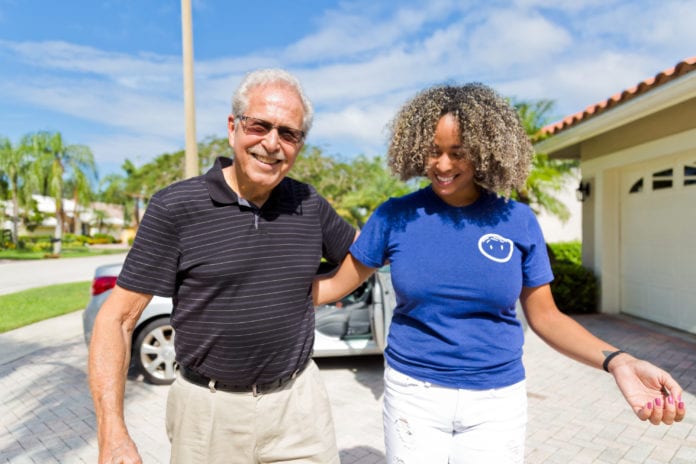Care providers are closely watching the Medicare Advantage (MA) market to see how insurers carve in home care services under the expanded supplemental benefits that are coming in 2019. Traditional providers aren’t the only groups paying attention, though, as companies operating on the fringes of home-based care are also eyeing MA opportunities.
The latest: Papa, a Miami-based “grandkids on-demand” startup.
“We’re working on several pilots where Papa would be available to older adults who are members of [Medicare Advantage plans], based on certain factors, primarily around loneliness,” Andrew Parker, CEO and co-founder of Papa, told Home Health Care News. “We believe we’re uniquely positioned to support these individuals and do that through MA plans.”
Launched in 2017, Papa is a membership-based platform that connects college students to seniors to provide companionship and general assistance, including transportation services and other task-based help around the house. Accessible via phone, mobile app or website, Papa is currently available in 15 of Florida’s biggest cities, including Miami, Tampa and Orlando.
Earlier this month, Papa announced it had raised $2.4 million in seed funding, bringing its total fundraising to more than $3.2 million. Initialized Capital led the most recent funding round, with additional investment from Sound Ventures.
A chunk of those new funds will go toward building and strengthening Papa’s Medicare Advantage partnerships, Parker, whose grandmother uses the platform on a weekly basis to connect with a “Papa Pal,” said. The startup is currently demonstrating to health plans exactly how its features combat senior isolation, which some experts say has as negative a health impact as smoking nearly a pack a cigarettes per day.
The exact number of older adults living in isolation is unknown, but it could be as high as 14%, according to a 2017 report by the AARP Public Policy Institute.
“We’re going to use funds for expansion efforts and to be able to properly support our Medicare Advantage partners,” Parker said. “Papa has initially partnered with a few plans and expects to announce more details within the next two months.”
Parker declined to comment on which MA plans Papa is working with during its pilot initiatives.
In addition to forging MA partnerships, Papa is planning to expand to other states and markets, including Pittsburgh, where the startup is ramping up recruiting efforts.
A basic membership is free for seniors looking to use the Papa platform. Initiated services are then paid for at a rate of $20 per hour, broken down on a per-minute basis after the first hour. A premium membership has that same standard rate, plus a $30 monthly fee.
About 90% of Papa users choose the basic membership structure, Parker said.
There are about 600 “Papa Pals,” or participating college students, on the Papa platform. Participating students are compensated for their time interacting with seniors, receiving between 60% and 70% of the collected hourly rate.
Parker declined to comment on Papa’s revenue figures, but said the startup is at a stage where it is, indeed, making money. In general, his hope is that providers and insurers alike will see Papa as an important piece of the care puzzle and an ally in the push for keeping aging Americans in their own homes.
“I think we’re part of a larger picture, and I think we’ve found somewhat of an opportunity in the pre-care space,” Parker said. “It’s nice to see the health care industry looking for something that’s not clinical, per se, but can still have a lot of value in positively impacting individuals’ lives. It’s rewarding that we’re able to help push that needle forward.”
In April, the Centers for Medicare & Medicaid Services (CMS) opened the door for MA coverage of certain non-skilled, in-home care services as supplemental benefits starting in 2019. Some insurers — including Anthem, Inc. (NYSE: ANTM) — have begun to promote plans capitalizing on that move.
While startups such as Papa and traditional home care providers don’t compete directly, Papa’s plans to woo MA players could mean added competition for some agencies. Establishing initial relationships with insurers is no easy task, but one more group lobbying for attention may make for an even more crowded playing field.
Papa previously announced in April it had raised more than $800,000 in seed funding. Alfredo Vaamonde, the second co-founder of Papa, is also still active in the business.
Besides its standard companionship and task-based services, Papa has had a history of “outside-the-box” use cases, Parker said. Those cases include seniors using Papa to find companions for weddings and to find lost pets.
Written by Robert Holly




